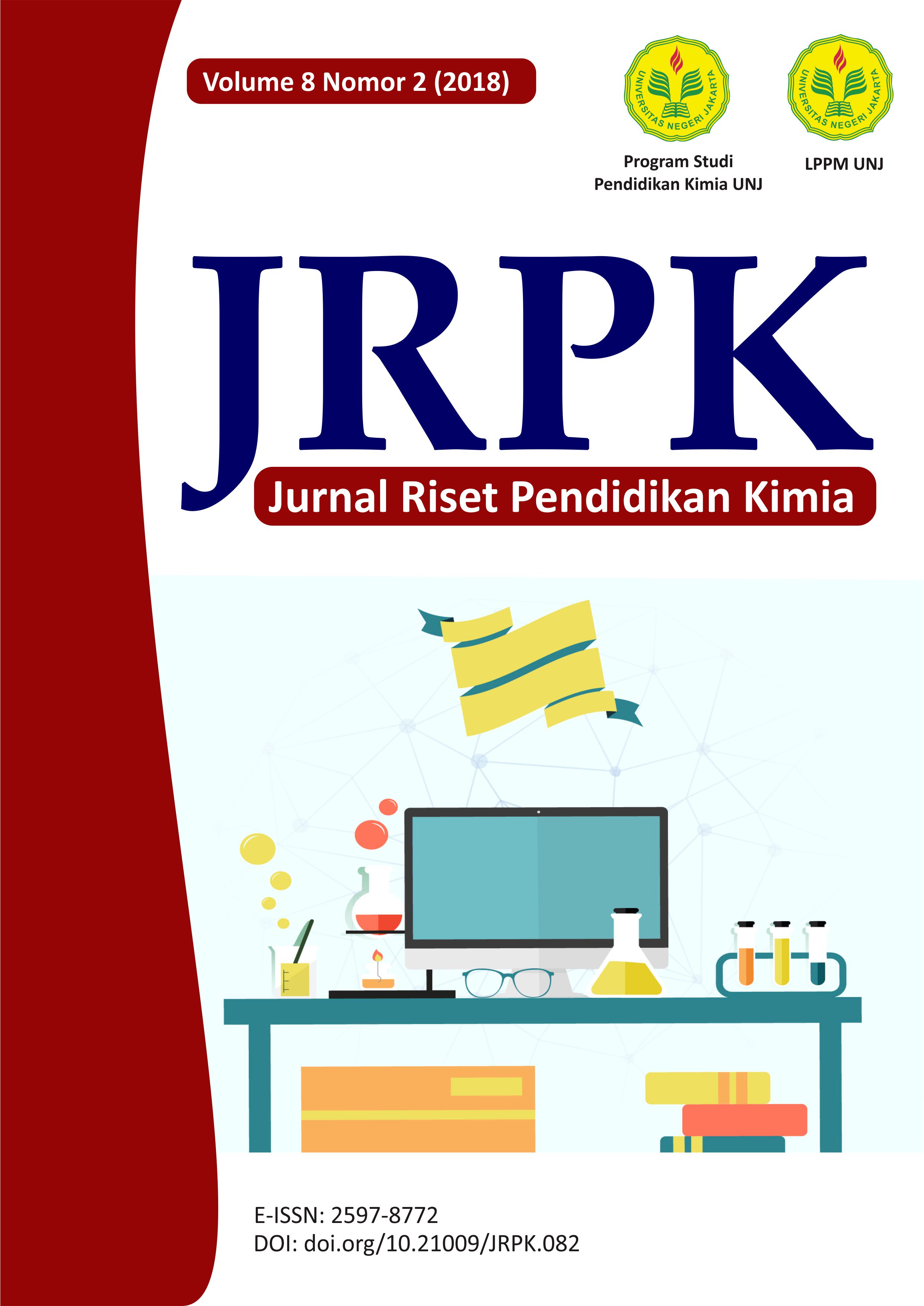Penerapan Model Problem Based Learning (PBL) Berbasis Pendekatan Saintifik untuk Meningkatkan Penguasaan Konsep pada Materi Pokok Kelarutan dan Hasil Kali Kelarutan
DOI:
https://doi.org/10.21009/JRPK.082.01Abstract
Has conducted research that aims to determine the effectiveness of the application of models problem based learning based on a scientific approach to the mastery of concepts. The study design using pretest-posttest control group. The study population was divided into two parallel classes as many as 58 students. The sampling technique used technique. purposive sampling Samples of this research is class XI-IPA4 as an experimental class at 29 students and class XI IPA1 as the control class as many as 29 students. Research instruments to determine the characteristics of the concept of using the format of concept analysis and concept map format. Profile mastery of concepts using reasoned multiple choice test items as much as 10 numbers. Increasing mastery of the concept of using formula. The N-gain The effectiveness of learning using different test formula (t). As well as the responses of students using a questionnaire. Based on the analysis found the data: (1) There are 14 label concept in the subject matter solubility and solubility product, consisting of 28% concept stating abstract principles include: Equilibrium Solubility, K o n s t a n t a S o l u b i l i t y P r o d u c t (Ksp), Q u o s i e n S o l u b i l i t y P r o d u c t (Qsp), and the electrolyte is difficult Late, there are 14.29% concept that states the size of the attributes include: temperature and degree of acidity (pH), as well as 57.14% are concepts that express the process include: solubility, homogenity ion, Precipitation, electrolytes, electrolytes binary, ternary electrolytes, electrolytes Quaternary, Saturated solution; (2) Obtained comparisonmean score of post- test the highest and lowest grade students mastery of concept experiment and control class. Comparison of scores post-test highest, 97.04> 94.58 on the label Saturated Solution concept, while the scores compare post-test experimental class that is 72.70 lows on the label concept ternary electrolytes and 70.43% in the control group; (3) The N-Indexgain of 0.77 categorized experimental class higher than the control class was 0.70 category being; (4) The application of models problem based learning based on experimental class scientific approach effectively improve the mastery of concepts students with post-test and N-gain sig. (2-tailed) <0,05, then effective to apply to groups of high and medium-ability students; (5) The application ofmodels problem based learning based on scientific approach has a good response with the percentage of 75.16%.
Keywords
Problem Based Learning Model, Approach Scientific, Control Concepts, solubility and Solubility Product Constants






